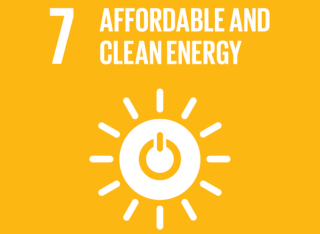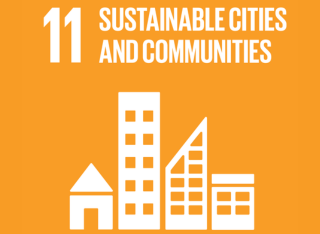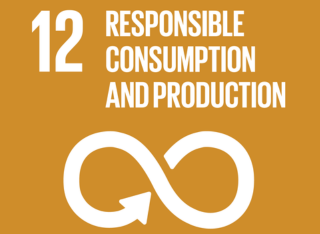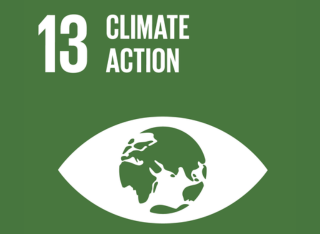
Energy and carbon
The University is committed to achieving net zero carbon in its scope 1 & 2 emissions by 2030. We currently use over 80 million kilowatt hours of energy annually. Our focus is on reducing our demand for energy, whilst increasing the proportion generated by renewables. The University is also seeking to further understand and reduce its scope 3 'indirect' emissions by 2050, for which it has developed a specific 'Scope 3 Plan'.
Net zero carbon
In 2020, the University committed to reaching net zero in its scope 1 & 2 emissions by 2030. An 8-point net zero carbon plan for scope 1 & 2 has been developed, aiming to reduce the University's total energy demand whilst transitioning over to renewable energy. The 8-point plan details our baseline emissions for scopes 1, 2 & 3 of carbon, the target we have for all scopes, the actions we are taking, percentage contributions to carbon reduction, timescales for delivery, how the program of works is to be funded, who is responsible, how progress is reported and how the plan is to be reviewed.
The University has entered an energy partnership with SSE to support the delivery of this 8-point plan. SSE will help develop, design and implement a range of projects from simple energy efficiency schemes like insulation and LED lighting, through to major renewable installations like a 12MW solar farm and decarbonisation of the University’s heat network.
Delivery of net zero carbon will cost upwards of £100 to £200 million. Most of this funding will come via SSE. The first projects to be funded in this way is a 500kw solar array on the Surrey Sports Park. Next will be a 3MW solar array on a car park and a 12MW solar farm on university land to the west of the campus.
Our plan
Taking action
We have been actioning our plan on a number of fronts:
- Completing audits of space utilisation.
- Creating a design guide for the integration of net zero carbon criteria into all construction projects.
- Utilising an investment of £300,000 in energy efficiency projects.
- Setting up a new engineering team reducing demand by improving building service controls with initial demand reduction of 30% within buildings like the Innovation for Health building.
- Investigating the potential to join a carbon offsetting scheme with other universities.
- Progressing on the delivery of renewable energy projects, including a 12MW solar farm at Blackwell which is nearing a planning decision.
- Planning permission was also approved for a new energy centre, with the aim of replacing old gas boilers with heat pumps, electro boilers and energy storage systems to decarbonise heat.
Carbon & Energy Auditing
The Sustainability Team records energy consumption and carbon emissions for all its buildings within our campuses and uses this data to drive action within the 8-point plan.
The data has identified 25 key buildings that emit about 70% of our carbon. An Energy Reduction Team has been set up to undertake good housekeeping actions, changing control schedules, improving heating and cooling BEMs strategies and to audit for energy efficiency measures addressing point 2 of the 8-point plan (Efficient Operational Control) and point 3 (Energy Efficiency Investment). These fall generally in controls improvements to Building Energy Management (BEMs) and standalone systems, as well as lighting, heating, ventilation and cooling upgrades, improvements to building fabric and plant room insulation as well as replacement of inefficient lab (and other) equipment.
Top 25 Carbon Emitting Buildings (Tonnes of CO2):

The Energy Reduction Team has a plan for auditing its buildings, having started with Surrey Sports Park, halls of residence and some of our key laboratory buildings. The audit plan will run for 2 years.
Scope 3 Emissions, Baseline & Auditing
In 2023 the University released a Scope 3 Report, which audited our Scope 3 carbon emissions. On the back of this audit, a Scope 3 Action Plan (docx) has been developed to address emissions.
The University of Surrey’s baseline for scope 3 emissions, taken in 2018/2019, is 83,110tco2e. In 2021/2022, scope 3 emissions totalled 68,964tco2e.
The University aims to reduce scope 3 carbon emissions to net zero by 2050.
Climate Adaptation and Resilience Plan
The University has written a Climate Adaptation and Resilience Plan to address its climate resilience for the coming 5 years, this plan sets out some key challenges and a range of actions to be undertaken.
A new working group involving key stakeholders from across the university is being set up during the autumn of 2025 to drive forwards the plan.
Sustainable Development Goals
Our net zero carbon actions tackle several of the UN Sustainable Development Goals.




